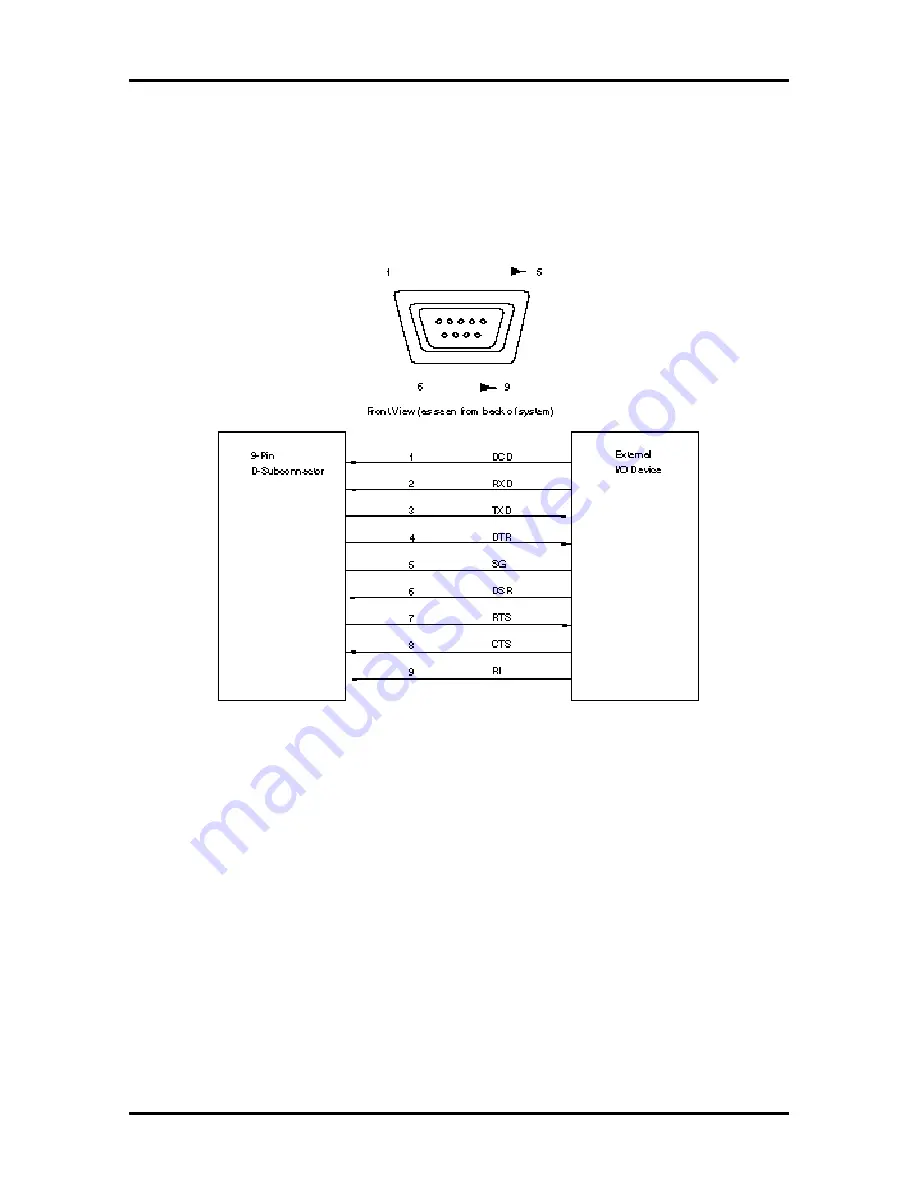
Connector Pin Assignments B-3
SERIAL INTERFACE CONNECTORS
Serial interface signals are output from the system board through two 9-pin COM port
connectors. The 9-pin, D-subconnectors are located at the rear of the system unit. Pin
locations and pin assignments for the two serial interface connectors are shown in
Figure Appendix B-2.
Figure Appendix B-2 Serial Interface (P3/P5)
















































